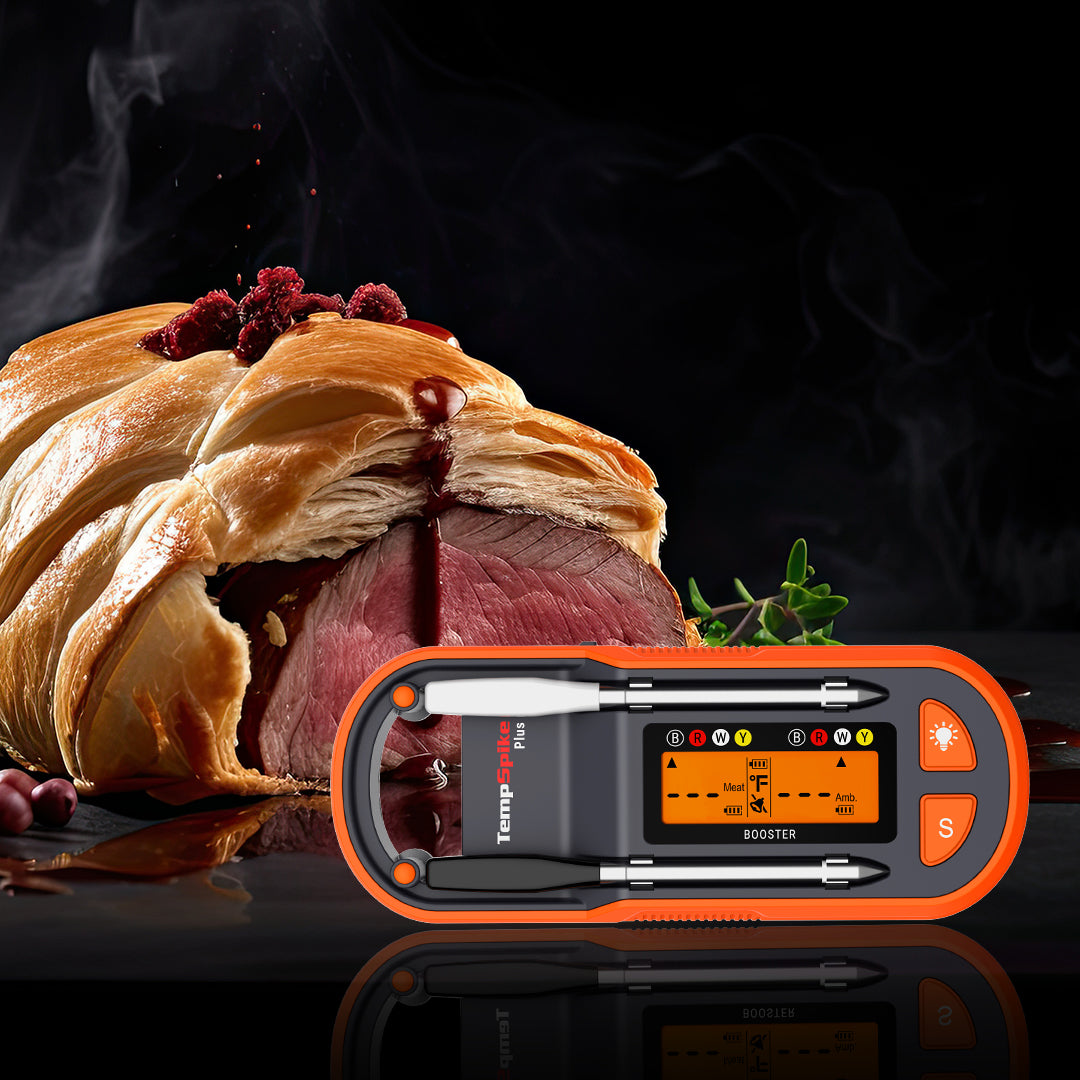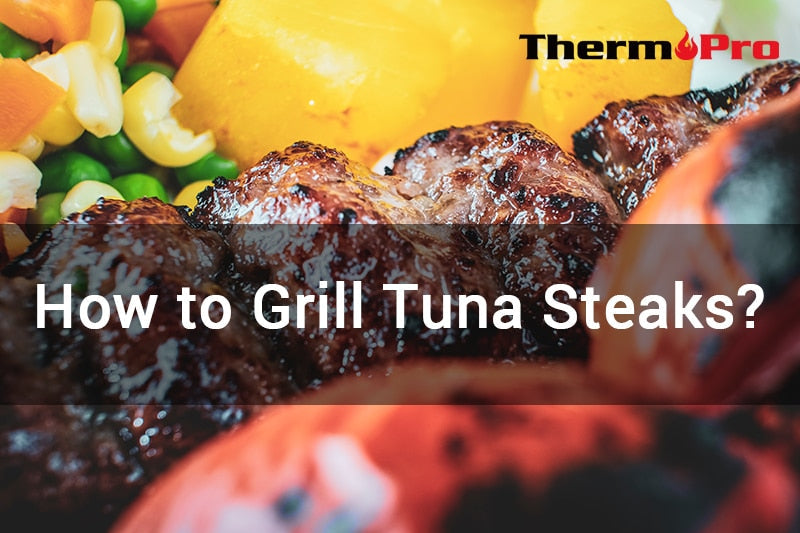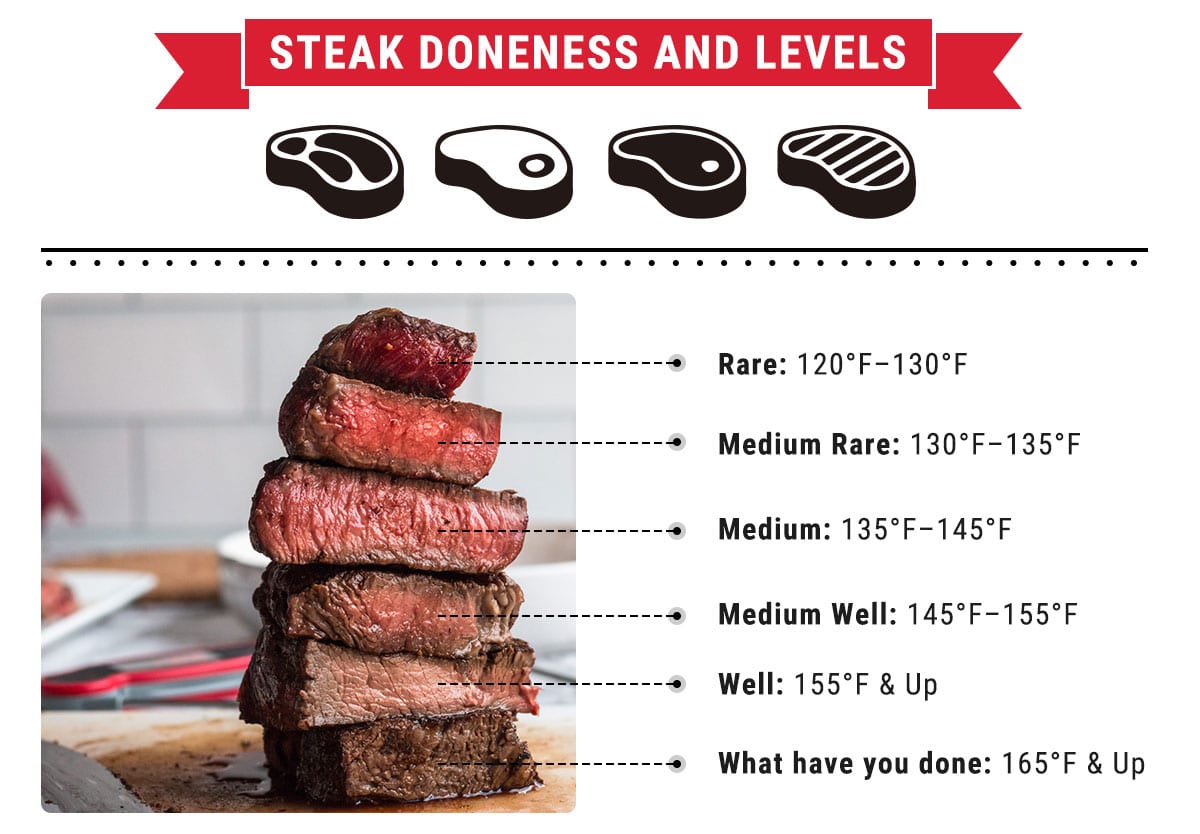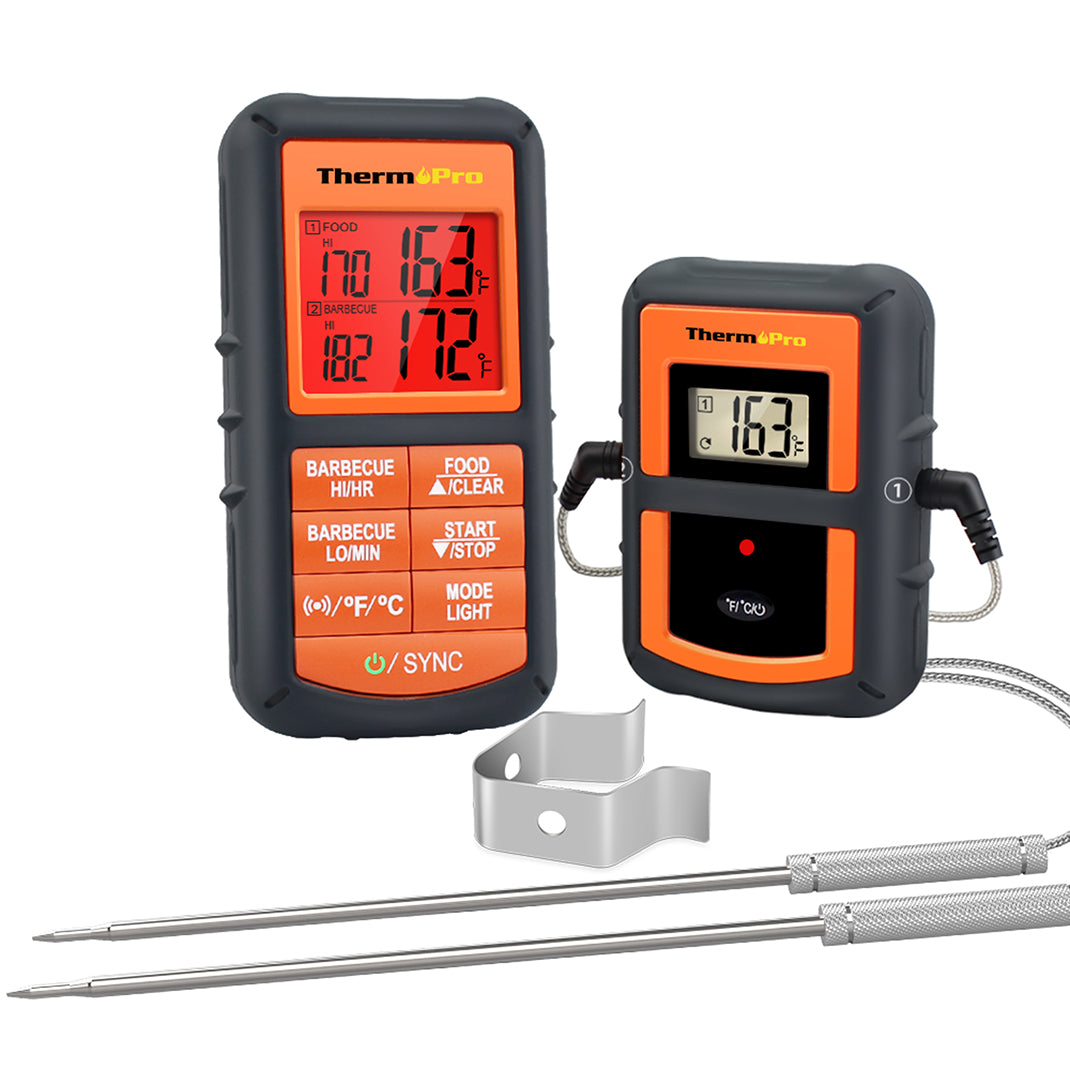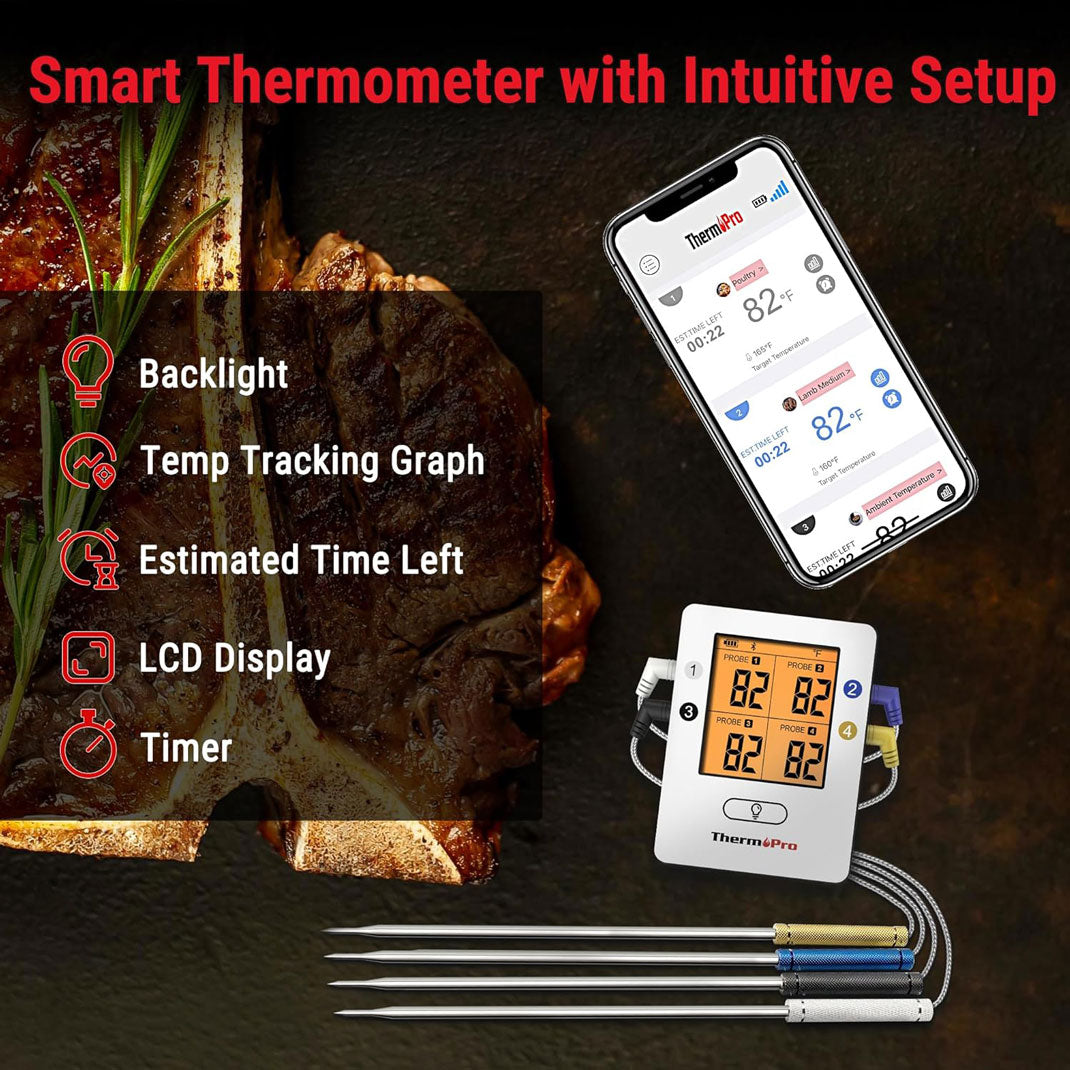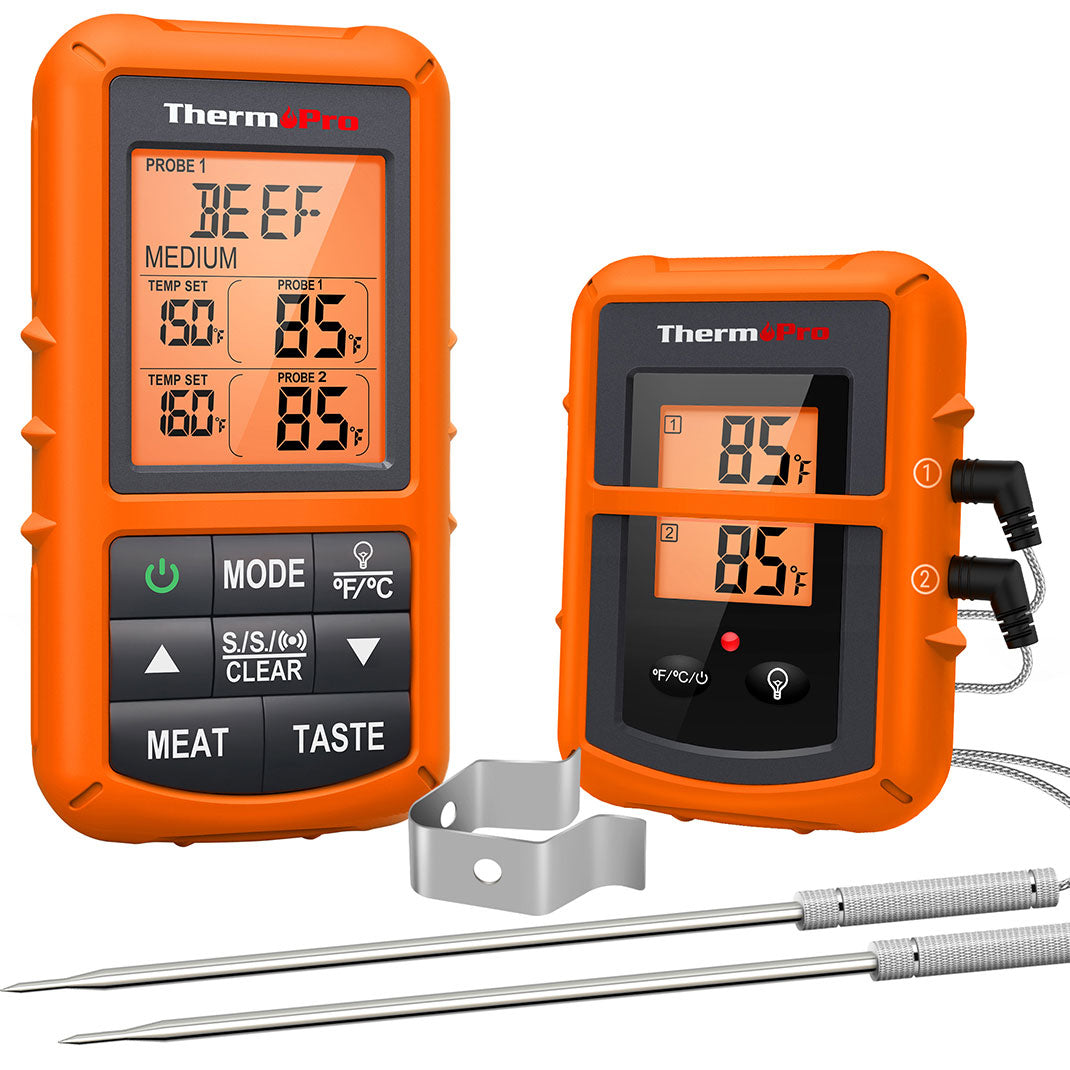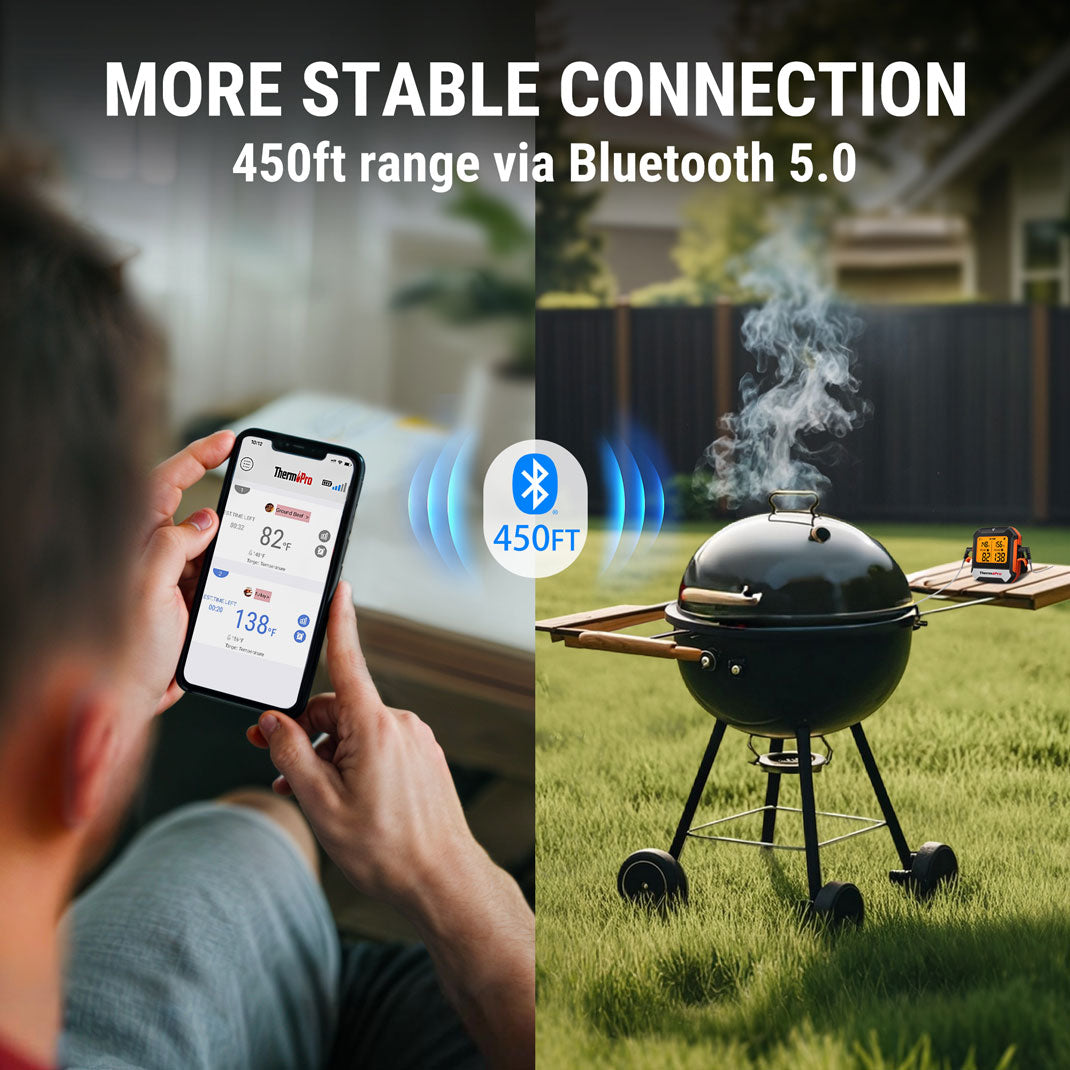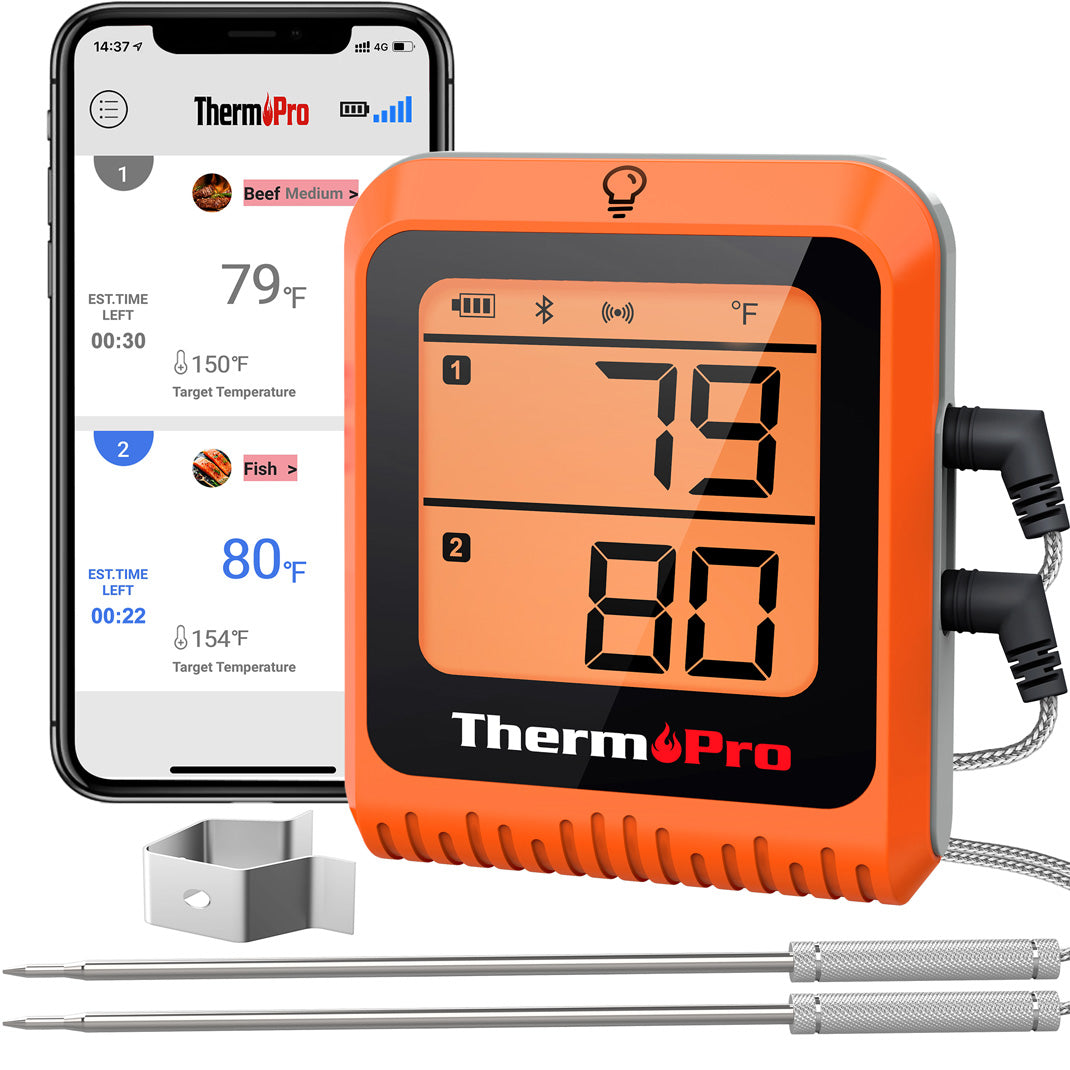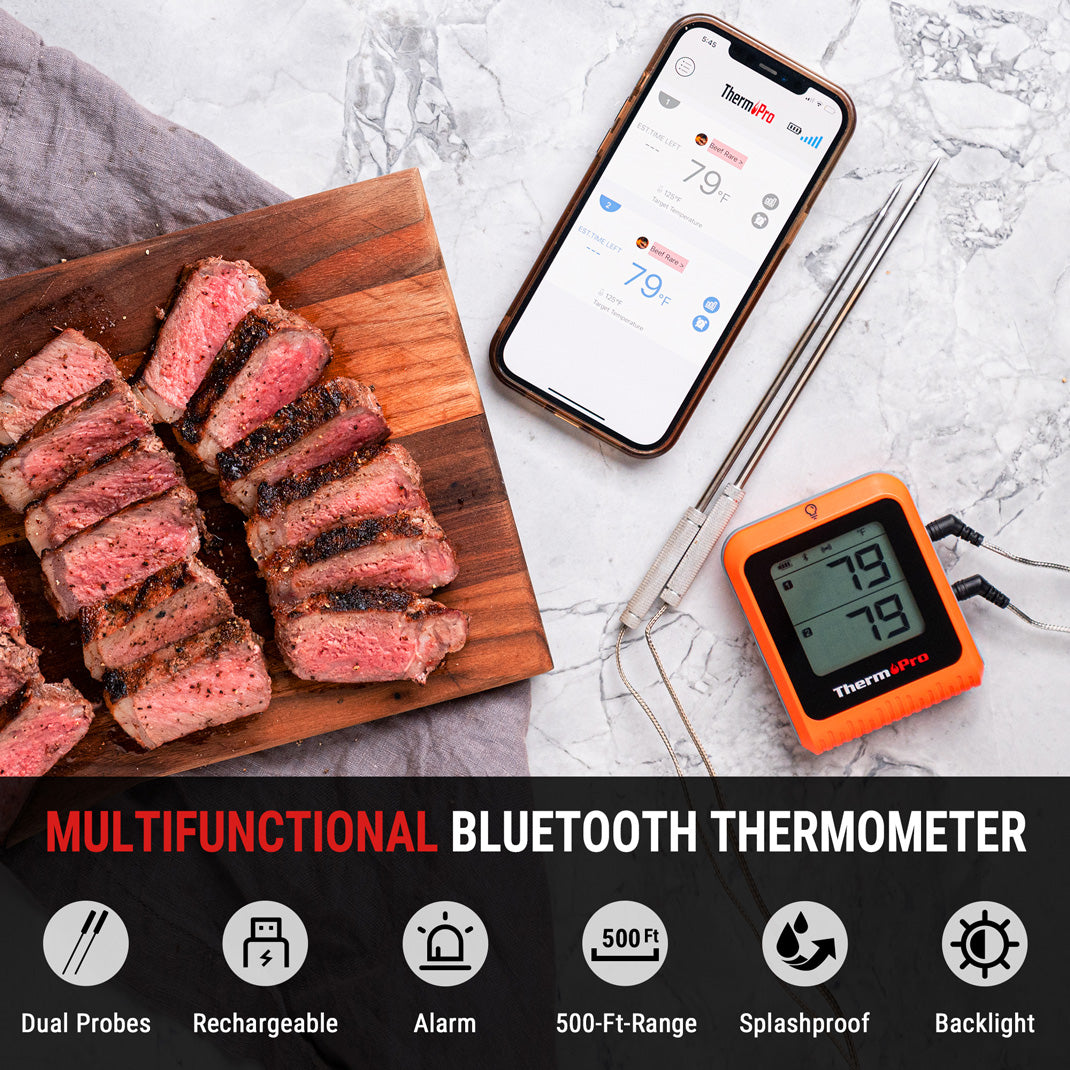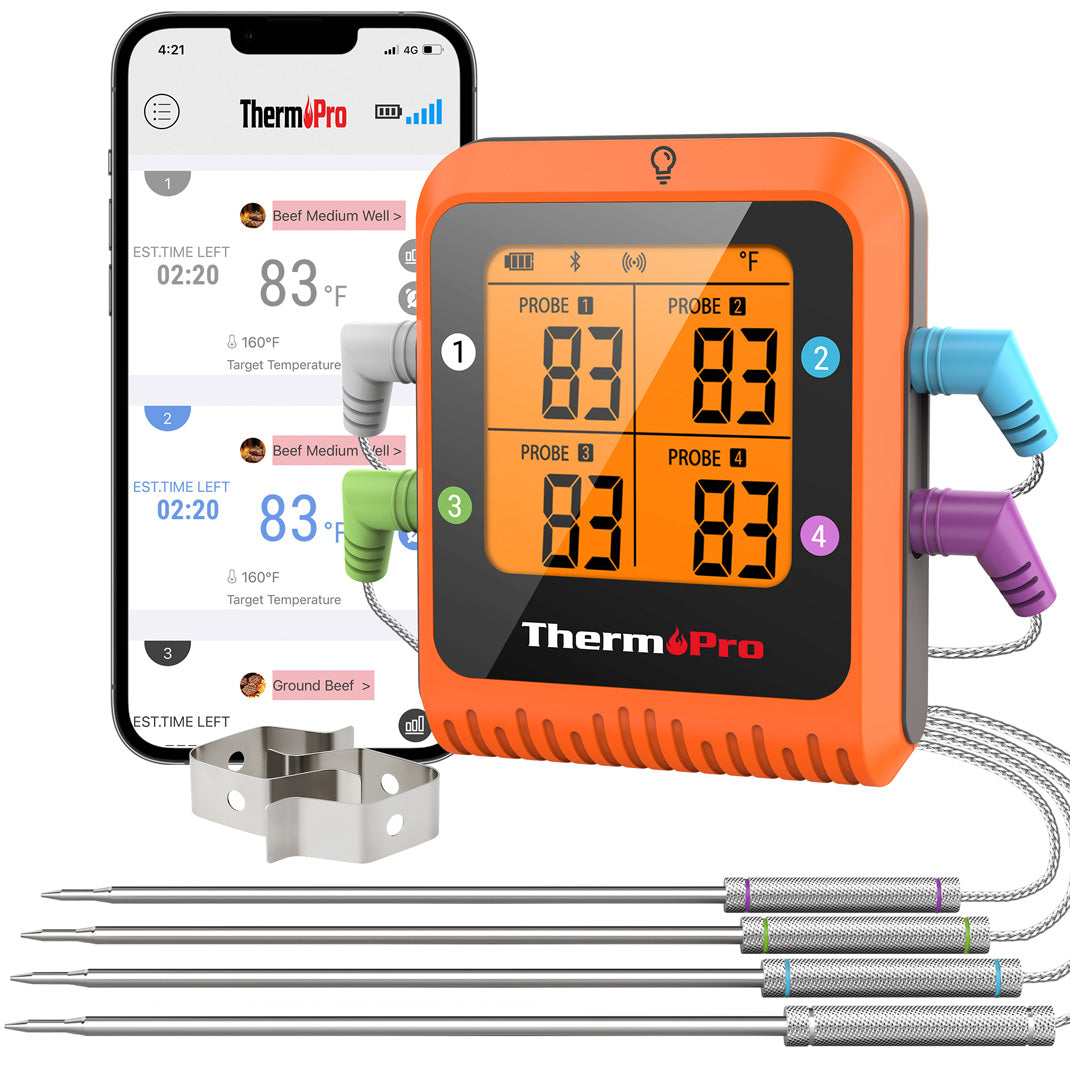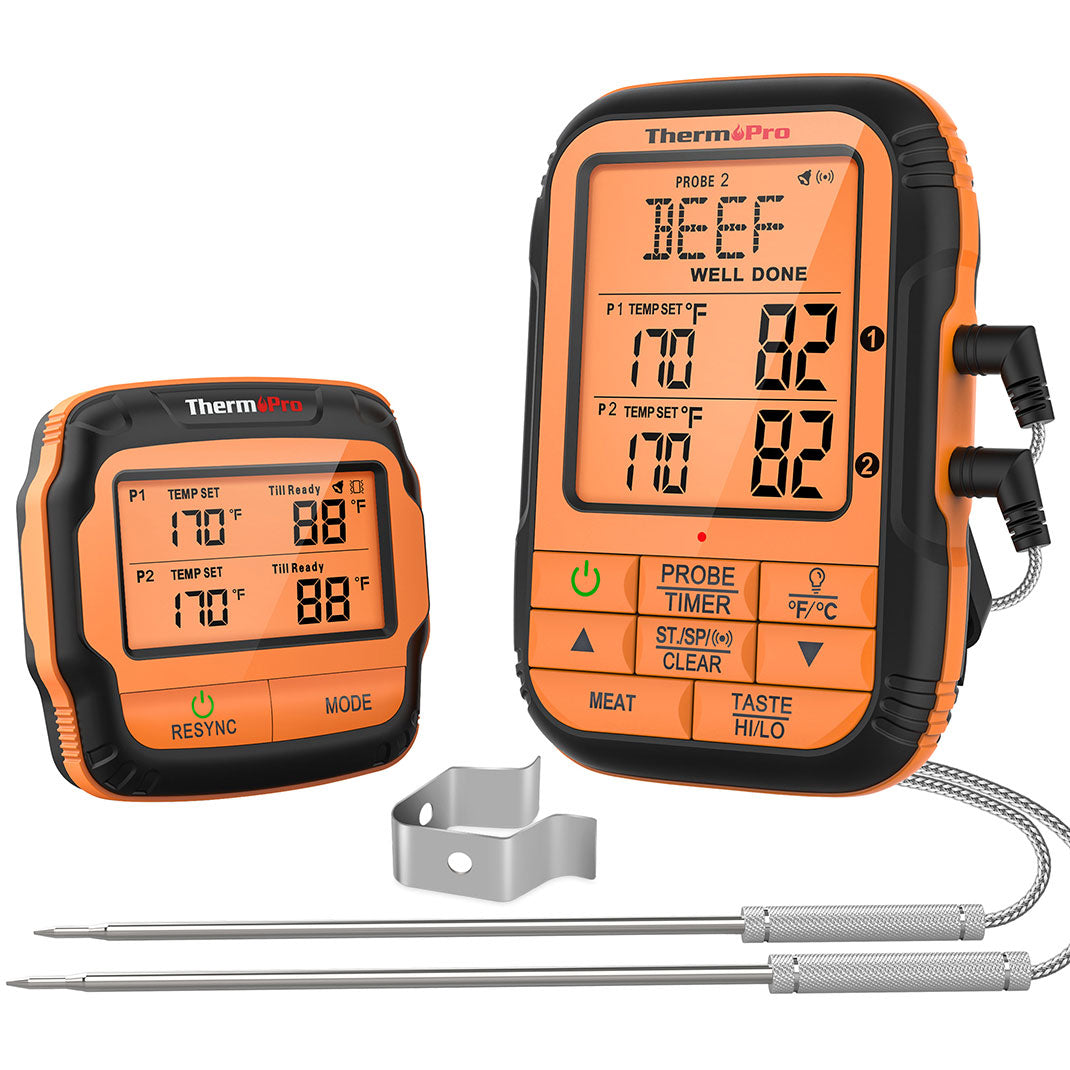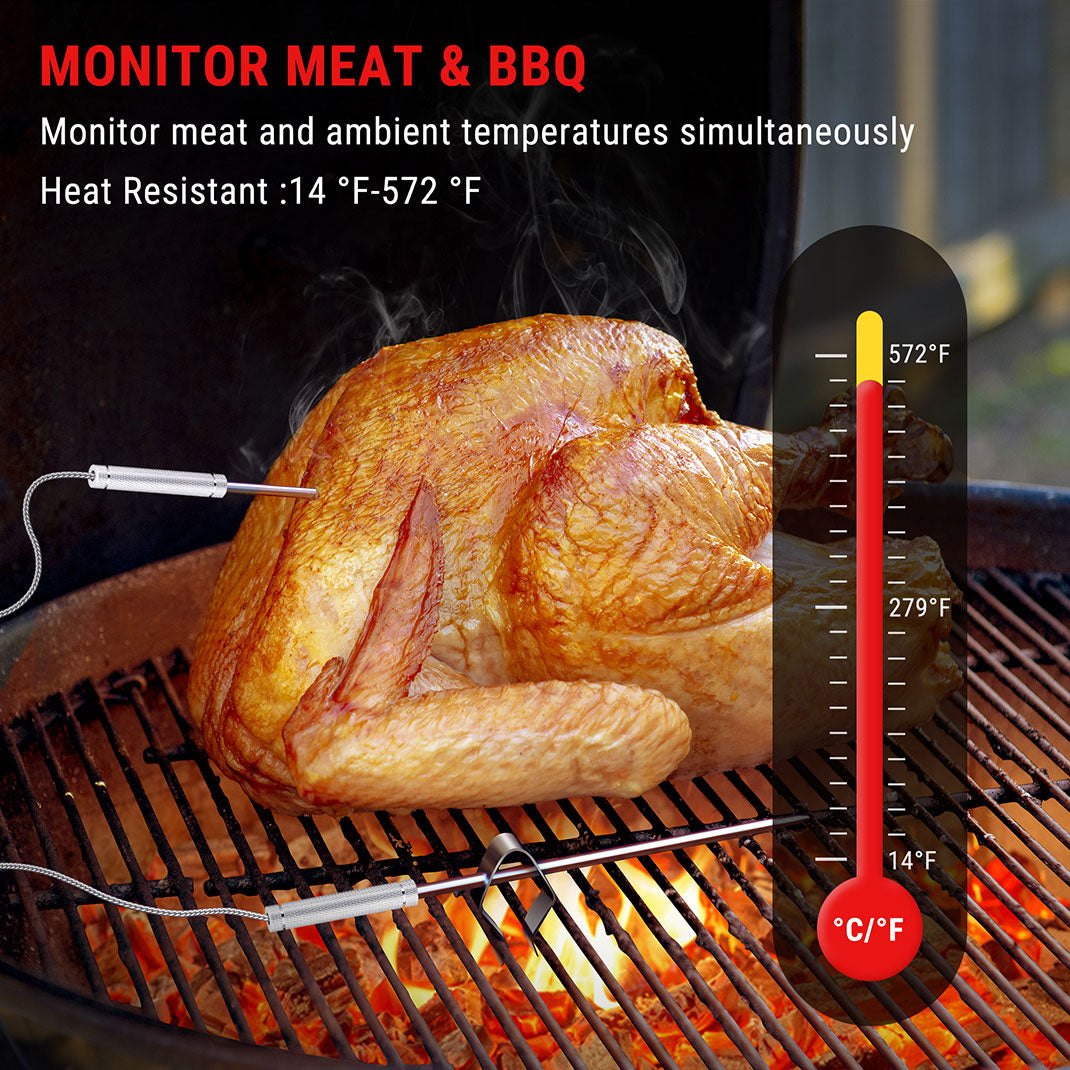Being able to break out your grill again finally is undoubtedly one of the best parts of summer. After all, few activities in life can be more enjoyable than having a backyard barbecue with your closest friends and family. Unfortunately, if you’re like many people, your grilling adventures don’t always turn out anywhere near as well as you wish. Of course, there are also many enthusiasts who treat grilling as more of an art and science instead of simply a way of cooking some tasty meat. Still, you don’t need to have anywhere near this level of dedication to experience excellent results every time you use your grill. Often all it takes is making sure that you avoid making any of these common grilling mistakes.
No.1 Not Cooking Your Meat to the Right Internal Temperature

Trying to cook the perfect rare, medium-rare or medium-well steak isn’t easy, and it’s something that even professionals often struggle with. Of course, this is also why most professionals always rely on a meat thermometer since this is the only way to judge the internal temperature accurately. Simply put, using a meat thermometer is the best and easiest way to ensure consistent results and prevent problems with over- or undercooked meat.
No.2 Failing to Clean Your Grill Properly

You’ll want to take a bit of extra time to clean your grill and grates when you first take it out of storage for the summer, but it is also essential you use a quality grill brush to thoroughly scrape your grate every time you’re about to use it. Any leftover bits still stuck to the grill can impart bad flavors to your meat and also increase the chances of flames or a flare-up. Therefore, it is vital that you let the grill heat up thoroughly and then give the grate a good brushing just before you put your food on.
No.3 Using Match-Light Coals or Lighter Fluid to Start Your Fire

Sure, using lighter fluid or match-light coals makes it much easier to get your fire roaring quickly, but the problem is that those burning chemicals also tend to give your food an acrid or bitter taste. Therefore, it is recommended that ignite your coals naturally using either a chimney starter or electric charcoal starter.
No.4 Trying to Spread Your Coals Before They’re Fully Hot

Patience is one of the biggest keys to great grilling results, and this is particularly true when starting your fire. In this case, spreading the coals out before they’re completely ready can make the results far harder to predict and control. Bad flavors from improperly burning coals, inconsistent heat and dramatic variations in cooking times are just a few of the problems you could experience if you fail to wait until your coals are completely ready.
No.5 Not Letting Your Grill Heat Up Enough

Your fire is hot enough that you can’t hold your hand above it doesn’t mean that your grill has heated up sufficiently for cooking. The entire grill and grill grate also need to heat up sufficiently or else you’ll risk your food sticking. Therefore, it’s a good idea to keep your grill covered with the grate in place for at least five to 10 minutes after your fire is ready before starting to cook. Otherwise, the lack of conductive heat passing from the grate to the meat can form a chemical bond that causes the meat to permanently stick and then tear when you try to flip it.
No.6 Letting Your Entire Grilling Area Get Too Hot

Making your grill get too hot can cause just as many problems as not letting it heat up enough. In this case, your meat is likely to end up burnt on the outside and still raw in the middle. Of course, too much heat is usually easy to control. Unfortunately, the problem is that most people spread their coals evenly across the entire grill, which doesn’t leave you with any options if one piece of meat is cooking too quickly. Therefore, it is always a good idea to spread your coals in a way to create two or three different temperature zones to give yourself more options when cooking.
No.7 Taking the Lid Off Your Grill Too Frequently
Be patient also means understanding that grilling takes time. Typically, there’s usually not much you can do to speed up the process, and staring at the meat while it’s cooking won’t make things go any quicker. Constantly opening the grill to see if your food is done will make it take much longer since you let a ton of heat escape each time you take off the lid. Instead, it’s better to have an approximate idea of how long it should take based on the type of meat, how hot your fire is and the desired level of doneness, and you can easily find all of this information online.
No.8 Not Using Your Grill Vents Correctly

One of the keys to setting the right temperature is using your upper and lower vents to adjust the oxygen flow and thus how quickly and how hot the coals burn. You’ll want to open the vents more to raise the temperature, and then gradually close them until you reach your desired heat level.
No.9 Cooking Over Too Much Direct Heat

Not all grilling tasks should be done over direct heat. Sure, cooking over a fire is great for steaks, burgers, and sausages, but it’s not so good for a larger piece of meat that needs much more time on the grill. Therefore, it is essential that you learn more about indirect cooking since this method is often key to preventing burnt, undercooked meat, and it can also help to prevent meat from drying out.
No.10 Not Properly Controlling Flare-Ups

Again, cooking directly over big flames might seem like a good idea. However, the truth is that not stopping and thus letting flames directly touch your meat is never advisable. When this happens, the result is a scorched exterior and sooty taste, so it’s something you’ll always want to try to avoid.
No.11 Stabbing Your Meat to Turn It

When grilling, meat should only ever be turned, flipped or taken off the grill with a spatula or tongs. Some people use a BBQ fork for this purpose, but the problem is that stabbing the meat like this lets out a lot of the juices and tends to make the finished product much drier and tougher.
No.12 Flipping Your Meat Too Soon or Too Often

Many experts say that you should only ever flip your steaks or burgers once and that doing it more often tends to result in a much drier, less tasty product. Moreover, flipping too soon can also cause the meat to stick and further harm the result.
No.13 Trying to Cook Too Many Things at Once

Overloading your grill can make it impossible to get things to cook properly or evenly. Putting too many items on your grill at once also greatly increases the cooking time. It is often quicker to do the same amount of food in two or three batches than it would be to try it at once. Not only that but grilling fewer items at once also tends to result in better flavor and more even, more predictable results.
No.14 Not Letting Your Meat Rest Before and After Cooking

Most experts recommend taking your meat out of the fridge approximately 30 minutes before cooking to allow it to warm up a bit, and this step is especially important when cooking less-done steaks since otherwise, they could still be cold in the middle. At the same time, it is also essential that you let food rest for at least five to 10 minutes after it comes off the grill before cutting or serving. Otherwise, cutting too soon usually means you’ll lose most of the juices and lots of the flavor.
No.15 Putting Barbecue Sauce on Before It’s Time

Basting and putting barbecue sauce on isn’t the same thing even though many people think so. The majority of barbecue sauces have quite a bit of sugar in them, and this means they tend to burn quite quickly. Therefore, it is always best to put barbecue sauce on only in the last few minutes before you take the meat off the grill.
Ultimately, grilling the perfect piece of meat isn’t exactly rocket science. Much of what it takes to master the art of grilling is common sense and knowing how to learn from your mistakes. Still, hopefully, you’ll be able to make fewer mistakes from now on now that you at least know what not to do.






 288 Comments
288 Comments
